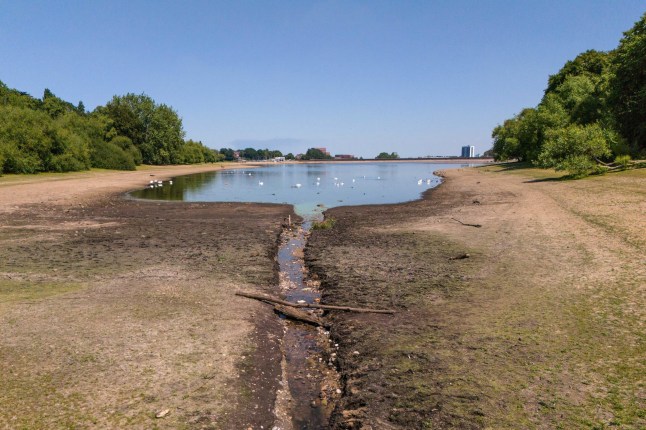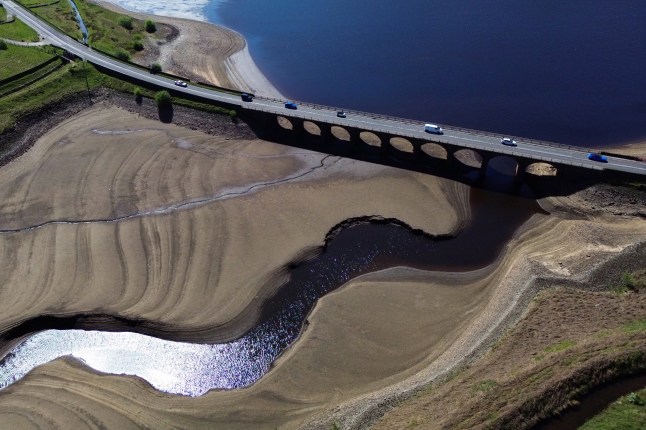Here’s why a drought is so bad for you


A drought has been declared in the West and East Midlands, joining the North West and Yorkshire after weeks of scorching weather.
The announcement by the Environment Agency today follows one of the driest starts of the year since 1976, leaving reservoirs cracked and dry.
Most of the rest of England is in a state of prolonged dry weather, includingLincolnshire and Northamptonshire, East Anglia, and the Thames area.
After England saw 20% less rain than usual last month, three water companies have announced hosepipe bans so far.
Environmental officials said today: ‘Without further substantial rain, some water companies may need to implement further drought measures.’
Sign up for all of the latest stories
Start your day informed with Metro’s News Updates newsletter or get Breaking News alerts the moment it happens.
What is a drought?
Droughts are periods when there’s less rain over a few weeks and are part of the natural weather cycle.
Rain supplies water to the world, topping up rivers and reservoirs. Some of that water is removed through evaporation, with temperature and wind deciding just how thirsty the atmosphere is for water.
But droughts have become more intense and longer since the 1980s, almost everywhere in the world, because of climate change, according to a study last month. Even areas long known for being wet and soggy – like most of the UK – are becoming more arid.
The Environment Agency declares a drought based on reservoir levels, river flows and how dry the soil is.

The categorisation means the area may face crop failure, increased fire risk and local wildfire dying, the agency says.
Droughts can leave many people dehydrated, leading to an increase in disease and poorer mental health as people struggle to stay clean.
People with breathing conditions, such as asthma, also face risk as droughts can lead to worse air quality. Wildfires can cough up ash, charcoal and woody debris into the air.
Will there be any more hosepipe bans?
Dr Jess Neumann, associate professor of hydrology at the University of Reading, told Metro that if the dry weather continues, ‘then the bans will extend into more regions and affect more people’.
She added: ‘It is understandable that people feel frustrated when told they cannot use water whilst bills are increasing and leaks are plentiful.
‘However, every drop of water that remains in the natural environment helps to keep rivers flowing and wildlife in a healthy state.’
Water companies in England and Wales lost more than 1trillion litres of water in 2023 due to leaks, amounting to millions every day, The Observer found.
Severn Trent, which supplies water to the Midlands, did not rule out a hosepipe ban but said the company has not introduced one in 30 years.
A spokesperson told Metro: ‘So, whilst we want to reassure our customers that we’re doing everything we can to keep the water flowing, we can’t escape how hot and dry it is, and how little rainfall we’ve had this year.
‘We experienced record levels of demand just last week and that’s why, as well as doing everything we can, we’re also asking our customers to be even more mindful of their water usage during this hot spell.’
Get in touch with our news team by emailing us at webnews@metro.co.uk.
For more stories like this, check our news page.



